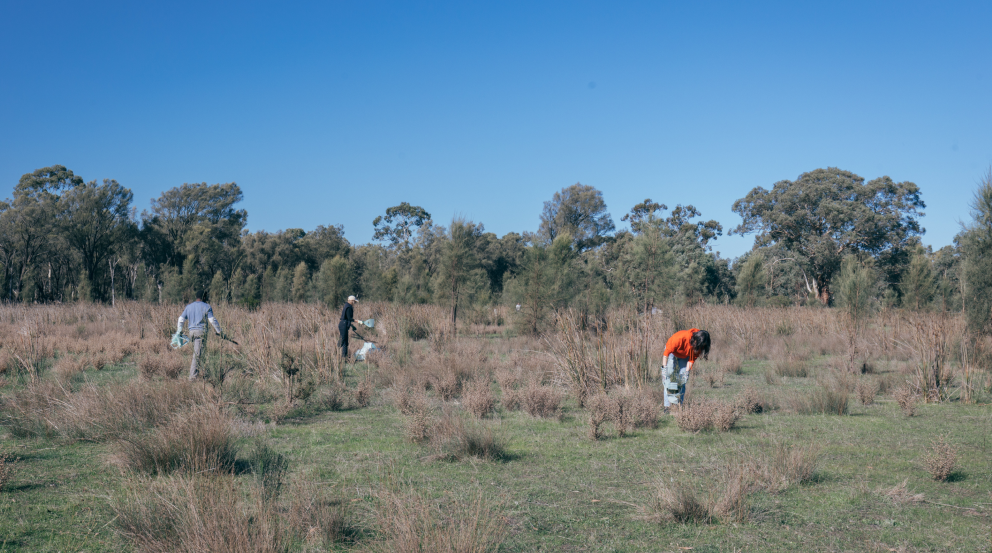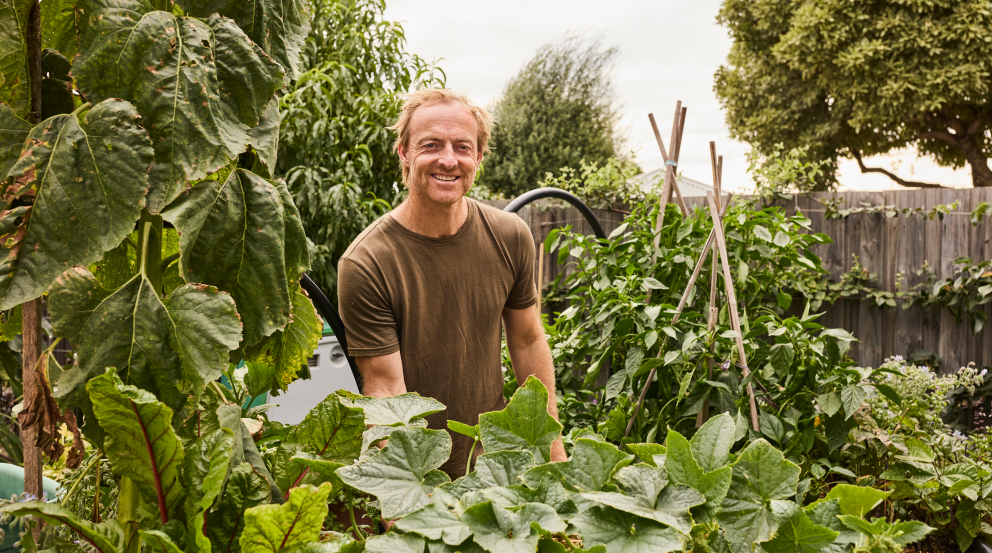“Practical, simple steps to ease your existential dread and help fight the climate crisis.” That’s what Project Planet is all about. We sat down with co-founder and Bank Australia customer Tegan Lerm to find out how the team is making climate action easy and accessible.
“We get asked the same question all the time,” says Tegan Lerm, co-founder of climate education and action platform Project Planet. “People say, ‘I really want to do something, but I have no idea what.’”
It’s a common problem. You’ve got the will and motivation to take climate action, but finding that first step in a swirling soup of greenwashing, complex science, hostile politics and creeping existential dread isn’t always easy. So I’m composting my banana skins. Now what?
“We were just trying to help people navigate that question,” Tegan says. “We sometimes say that Project Planet is your gateway drug to climate action.”
Project Planet is a not-for-profit, volunteer-run organisation that basically gives you – an ordinary, climate-concerned human being – the tools needed to pitch in and take action. The idea sprouted just before the 2022 federal election. Tegan’s co-founder Lizzie Heading had just developed an online tool, Vote 1 Climate, which helped voters rank their local politicians on climate policy. She was exhausted and looking for a partner to carry on the fight. Tegan and Lizzie met through social media, hit it off immediately, and saw an ongoing opportunity to move climate action out of the ‘too hard’ basket.
.webp)
The general goal is to arm people with knowledge. Specifically, young people who know climate change is a problem but they don’t know what they can do about it, or where to start. The idea is that knowledge leads to empowerment, empowerment leads to action, and action leads to change.
The organisation’s work is divided into two broad streams: Learn, which breaks down the climate science and how we got here, and Act, which details some simple things we can all do to move the dial: vote responsibly, volunteer your time, and make changes in your own life.
All of these takeaways (and more) are shared across Project Planet’s platforms, which include Instagram, TikTok, a monthly newsletter and their podcast That’s Hot. (Bank Australia’s Manager of Climate Action Strategy, Georgia Windrum, recently featured on a podcast episode about the power of money as a form of climate action.)
So what can you expect to see if you follow Project Planet? Think beautiful designed trending story explainers, ‘what’s hot and what’s not’ monthly climate wrap-ups, interviews with the climate community, informal chats about dating as a climate activist and answers to frequently asked climate questions. “We also throw some memes in there to help people feel like there’s a bit of humour when navigating this issue,” Tegan says.

A sense of humour is also a helpful tool to alleviate climate anxiety. People – especially young people – are understandably scared of climate change, but that existential dread, if left unchecked, can lead to paralysis. The trick, Tegan says, is simply getting involved.
“Engaging in climate action really does help those feelings of anxiety,” she says. “Having those conversations, joining climate organisations, engaging in content – it makes you feel part of a community. And that’s so beneficial.”
Start with one small step. Tegan suggests getting your finances in line with your values. “If anyone comes to me and asks what they can do quickly, I always say, ‘Move your money,’” Tegan says. “Move it to an ethical super fund and an ethical bank. It’s such an easy thing to do, but it’s so often overlooked!”
Project Planet’s superpower is shining a light on these paths of progress. Breaking down something big and complex and scary and turning it into simple, actionable steps. The more we understand climate science, the less helpless we feel, and the more likely we are to make changes in our own life. As Tegan says, the climate crisis isn’t just a scientific problem anymore. The problem belongs to everyone, and the solution is in collective understanding and action.
“We have all the technology we need,” she says. “Climate change is really a communications issue now, and that resonates with me. We have all these scientists working their asses off, doing incredible studies, writing reports, but you still need people to filter that information to a wider audience.
“Hopefully that’s what we can do here, keep telling those stories and engaging that broader community.”
.webp)







